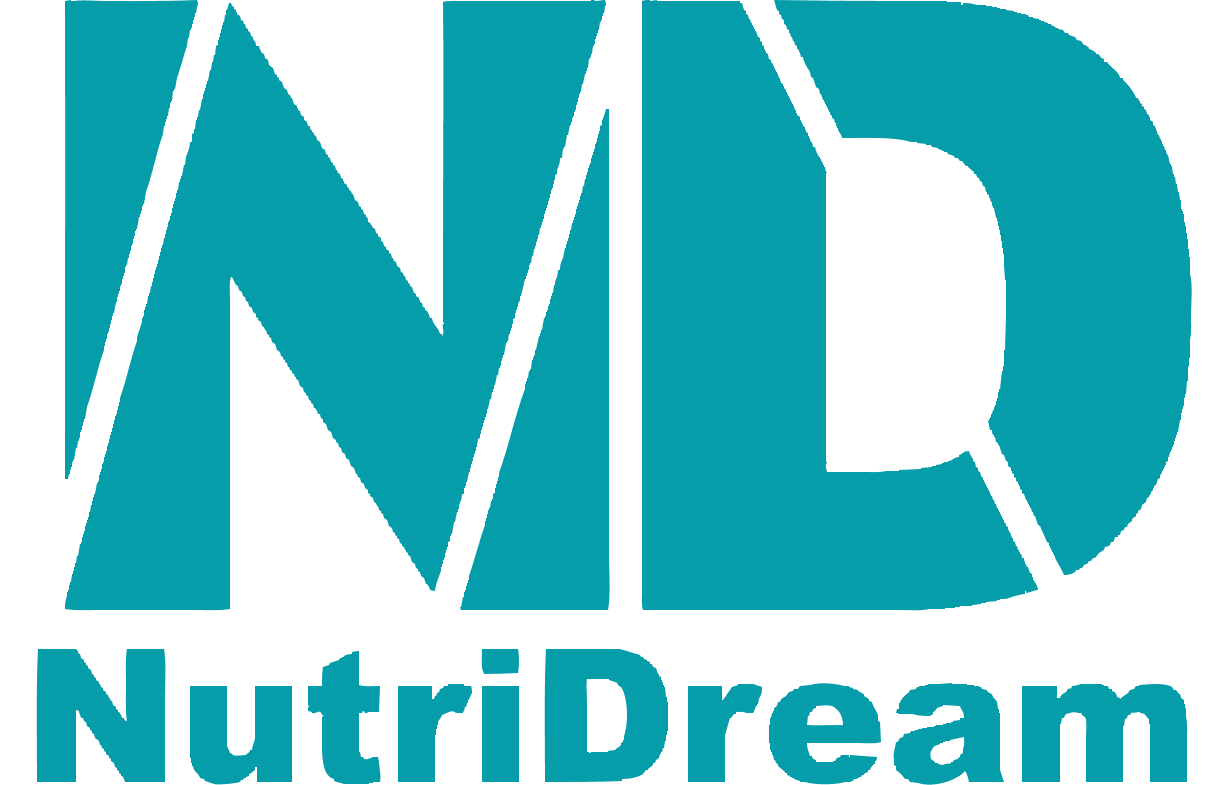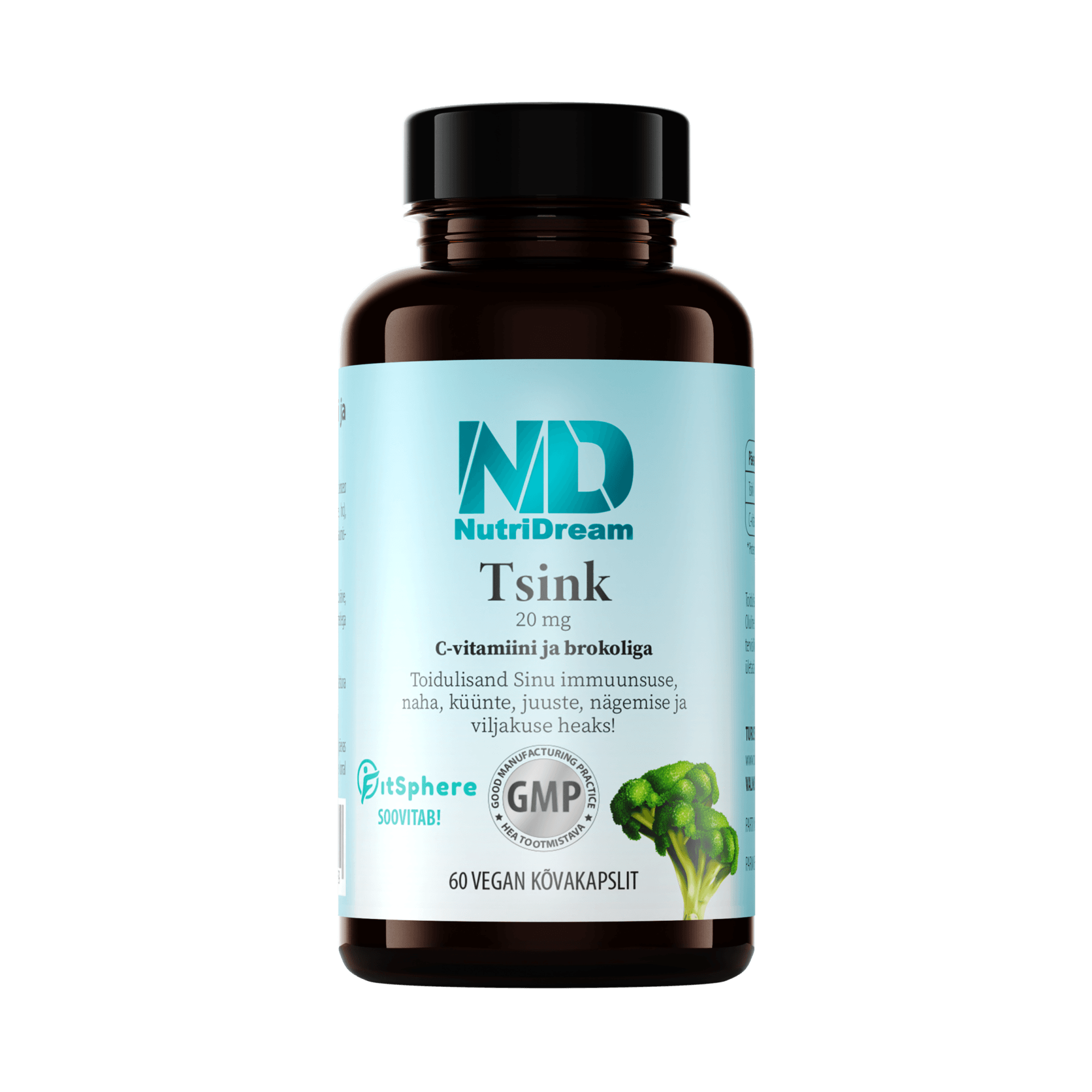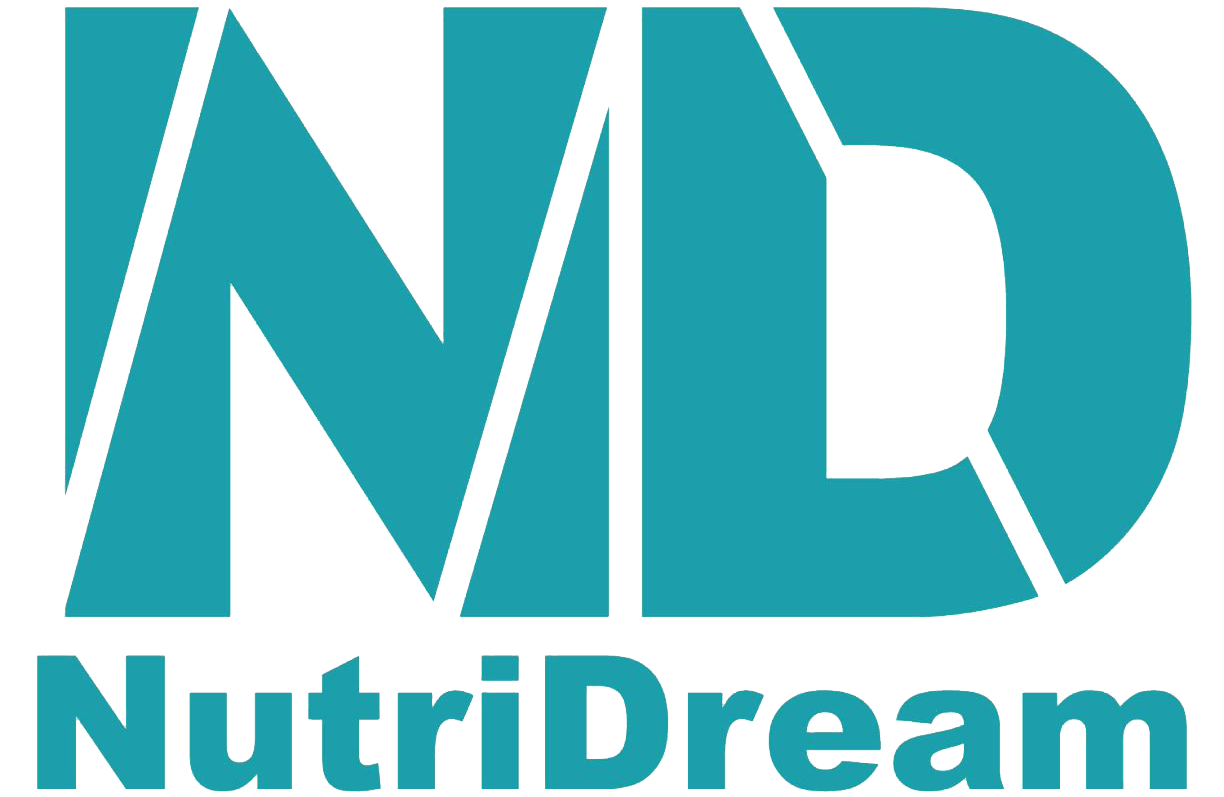Zinc and its necessity for our body
Zinc is an important micro mineral for our body. It is necessary for many cellular processes, such as enzyme activity, protein and DNA synthesis, and cell division. In addition, zinc supports the growth and development of the organism. Zinc helps keep bones, hair, nails, skin and vision normal and supports cognitive function. Zinc is mostly found in bones and muscles, but in men it is also abundant in the prostate gland. As a result of zinc deficiency, growth, development and reproduction are disturbed, as well as the normal development of the immune system and taste receptors.
- Zinc and immunity. The effects of zinc on the immune system have been extensively studied and zinc has been found to support the growth and function of immune cells. Namely, it has been shown that a lack of zinc in the body negatively affects the development and number of T and B cells. Zinc is also important in breaking down radicals that cause oxidative stress into safer compounds.
The effect of zinc on viral infections, especially colds, has been widely studied, but the results are mixed. A meta-analysis of data has shown that zinc supplements do not directly prevent cold symptoms such as sore throats and runny noses, but shorten their duration. Thus, the effectiveness of zinc depends on how quickly zinc supplements are administered when the first symptoms appear.
- Zinc and skin. Zinc is necessary for cell division and helps maintain normal skin. In addition, zinc supports the immune cells, which help fight the inflammatory processes of the skin wound. Zinc often works in combination with other components, such as vitamin C, to promote wound healing.
- Zinc and vision. Tsink, mida esineb palju silmakudedes, on oluline pimedas nägemiseks ning kombinatsioonis antioksüdandiga pidurdab kollatähni kärbumist.
- Zinc and fertility. In women, zinc regulates ovulation and epithelial tissue development in the reproductive system at the hormonal level. In men, zinc supports the formation, number and quality of sperm and also helps maintain blood testosterone levels.
Where do you get zinc?
In food, zinc can be found in cheese, meat, eggs, crabs and nuts. Absorption is promoted by amino acids and an acidic environment and it is inhibited by an excess of calcium and iron, an abundance of phytates in food and a decrease in the acidity of the environment.
Lack of zinc in the body
A zinc deficiency does not develop with a normal, varied diet, but the elderly and pregnant women, as well as vegans and vegetarians, are still at risk of a deficiency. Namely, plant-based food contains a lot of phytates, which bind to zinc and interfere with the absorption of the mineral. Zinc deficiency can be caused by long-term stress, gastrointestinal diseases, excessive use of iron preparations and alcoholism. Deficiency symptoms are severe fatigue, loss of appetite, decreased sense of taste and smell, sterility and delayed sexual maturity, irregular menstrual cycle.
Zinc in food supplements
Zinc is often used for colds. Also, when taking food supplements containing zinc, it should be remembered that their use can reduce the effectiveness of certain drugs (antibiotics quinolines and tetracyclines, as well as thiazide diuretics and penicillamine used to treat rheumatoid arthritis) and cause side effects such as diarrhea, nausea and headaches. Long-term use of high doses of zinc can also cause copper deficiency.
NutriDream zinc (20 mg) with vitamin C and broccoli
The main component zinc is present in the capsules in the form of zinc diglycinate and comes from the company Albion Laboratories. Compared to other forms of zinc, zinc diglycinate provides better absorption and bioavailability of the dietary supplement (see figure) and reduces the frequency of side effects. Vitamin C has been added to the product as an antioxidant to contribute to the normal functioning of the immune system, protect cells from oxidative stress and promote collagen formation in the skin. As a plant component, the NutriDream dietary supplement also contains broccoli sprout extract, which is rich in vitamins and minerals. In addition, broccoli also contains other health-promoting compounds, such as sulforaphane, which aids digestion and helps reduce inflammation.

Used literature
- Blasiak, J., Pawlowska, E., Chojnacki, J., Szczepanska, J., Chojnacki, C., Kaarniranta, K. (2020). Zinc and autophagy in age-related macular degeneration. International Journal of Molecular Sciences, 21(14), 4994.
- DiSilvestro, R. A., Dardenne, M., Joseph, E. (2020). Comparison of thymulin activity with other measures of marginal zinc deficiency. Biological Trace Element Research, 199, 585–587.
- DiSilvestro, R. A., Koch, E., Rakes, L. (2015). Moderately high dose zinc gluconate or zinc glycinate: effects on plasma zinc and erythrocyte superoxide dismutase activities in young adult women. Biological Trace Element Research, 168, 11–14.
- Ellinger, S., Stehle, P. (2009). Efficacy of vitamin supplementation in situations with wound healing disorders: results from clinical intervention studies. Current Opinion in Clinical Nutrition & Metabolic Care, 12(6), 588–595.
- Euroopa Toiduohutusameti (EFSA, EU Food Safety Agency) poolt aktsepteeritud tervisealased väited, komisjoni määrus (EL) nr 432/2012.
- Fallah, A., Mohammad-Hasani, A., Colagar, A. H. (2018). Zinc is an essential element for male fertility: a review of Zn roles in men’s health, germination, sperm quality, and fertilization. Journal of Reproduction and Infertility, 19(2), 69–81.
- Gammoh, N. Z., Rink, L. (2017). Zinc in infection and inflammation. Nutrients, 9(6), 624–649.
- Gandia, P., Bour, D., Maurette, J. M., Donazzolo, Y., Duchène, P., Béjot, M., Houin, G. (2007). A bioavailability study comparing two oral formulations containing zinc (Zn bis-glycinate vs. Zn gluconate) after a single administration to twelve healthy female volunteers. International Journal for Vitamin and Nutrition Research, 77(4), 243–248.
- Garner, T. B., Hester, J. M., Carothers, A., Diaz, F. J. (2021). Role of zinc in female reproduction. Biology of Reproduction, 104(5), 976–994.
- Hulisz, D. (2003). Efficacy of zinc against common cold viruses: an overview. Journal of the American Pharmacists Association: JAPhA, 44(5), 594–603.
- López-Chillón, M., Carazo-Díaz, C., Prieto-Merino, D., Zafrilla, P., Moreno, D. A., Villaño, D. (2018). Effects of long-term consumption of broccoli sprouts on inflammatory markers in overweight subjects. Clinical Nutrition (Edinburgh, Scotland), 38(2), 745–752.
- Mayo clinic: zinc supplement https://www.mayoclinic.org/drugs-supplements-zinc/art-20366112.
- Singh, M., Das, R. R. (2013). Zinc for the common cold. Cochrane Database of Systematic Reviews, 18(6), CD001364.
- Zilmer, M., Soomets, U., Rehema, A., Altraja, S., Mahlapuu, R., Porosk, R., Zilmer, K., Kullisaar, T., Kilk, K., Kairane, C., Salum, T. (2015). Inimkeha põhilised biomolekulid (meditsiiniliselt tähtsamad ülesanded). Inimorganismi metabolism (biokemism ja kliinilised aspektid). Tartu Ülikool.
- The health benefits of broccoli. https://www.medicalnewstoday.com/articles/266765.
- Ugarte, M., Osborne, N. N. (2014). Recent advances in the understanding of the role of zinc in ocular tissues. Metallomics, 6(2), 189–200.
- Wessels, I., Maywald, M., Rink, L. (2017). Zinc as a gatekeeper of immune function. Nutrients, 9(12), 1286–1329.
- Yanaka, A. (2018). Daily intake of broccoli sprouts normalizes bowel habits in human healthy subjects. Journal of Clinical Biochemistry and Nutrition, 62(1), 75–82.




